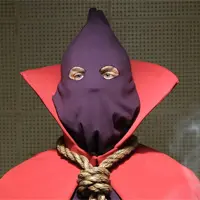Watchmen "blackwashes" history: It has the boldness to tackle the reality of blackness in America
-

Sunday's “This Extraordinary Being" episode does something indeed extraordinary -- it "blackwashes" history," says Lawrence Hare. "Never have I thought that a show spearheaded by a white man, Damon Lindelof, would so effectively capture the complexity of being a black person in this country," says Hare. "The number of unspoken microaggressions that pepper the daily life of black people throughout history has been put on screen by black filmmakers, but Watchmen is the first time that I can remember a show led by a white writer has done so without apology or a 'safe' white character inserted into the narrative to show the inherent goodness of that demographic. What’s more, the way that life was, and in many ways still is, a daily brush with death for people of color is boldly presented. The specter of death was everywhere and inescapable in this episode, and this was brought out horrifically and convincingly by Will Reeves’ near-lynching. But what struck me most was the way 'This Extraordinary Being' showed something that black folks have always known and many white folks are just now beginning to see: the way whitewashing distorts history."
ALSO:
- "This Extraordinary Being" explores the history of American racism unlike any show before: "It darts and weaves through American history, real and imagined, to create a portrait of a country that never once lives up to its ideals, while cruelly displaying those ideals on the horizon, a beacon of what could be true if not for the forces of racism, hatred, and greed," says Emily Todd VanDerWerff. "It’s also a gigantic attempt to fill in one of the single biggest pieces of Watchmen lore from the original comic, with its own clever answer to a big question about a secret identity." VanDerWerff adds: "I think I can honestly say that when I heard HBO and Damon Lindelof were developing Watchmen as a TV series, I never once thought, 'I bet we will see the attempted lynching of a black man from the black man’s literal point of view.' But that’s what happens in one of this episode’s most emotionally wrenching — and likely most controversial — sequences. Even before Watchmen’s debut, every time a critic (usually a white critic, I should note) said they weren’t sure the show had properly underscored the horrible power of some of its images, I knew exactly which sequence they were talking about."
- Watchmen is trying to analyze masked vigilantes through the prism of race and racial injustice: "While this has been evident from the beginning — the series opens with a harrowing dramatization of the 1921 Tulsa, Okla., massacre, in which a white mob destroyed the affluent black neighborhood of Greenwood, killing hundreds and displacing thousands — it has become even more apparent with Sunday night’s episode, titled 'This Extraordinary Being,'" says Jamelle Bouie. He adds: "Our society does not have masked vigilantes meting out punishment to racists. But if there were a Hooded Justice — if our history of racial violence and trauma had produced an avenger, of sorts — then Watchmen seems to say that whether or not it’s right, it is justified."
- Damon Lindelof's contention that "Nostalgia is toxic" went from subtext to text in Sunday's episode: "Every element of craft in this episode — direction, writing, costume and make-up, music — speaks directly to that toxic-nostalgia theme," says Jen Chaney, adding: "By essentially making a classic movie that tells a black man’s story about generational trauma, this episode is doing what the series as a whole is doing: It’s taking a known narrative, the Watchmen comic, and altering it in a way that makes race absolutely central to the story."
- Watchmen Episode 6 is the greatest superhero origin story of all time
- Lindelof explains the one line in Watchmen that almost ruined Hooded Justice's backstory
TOPICS: Watchmen, HBO, Damon Lindelof
